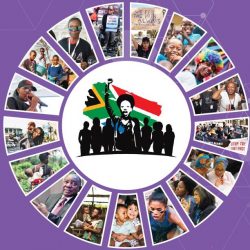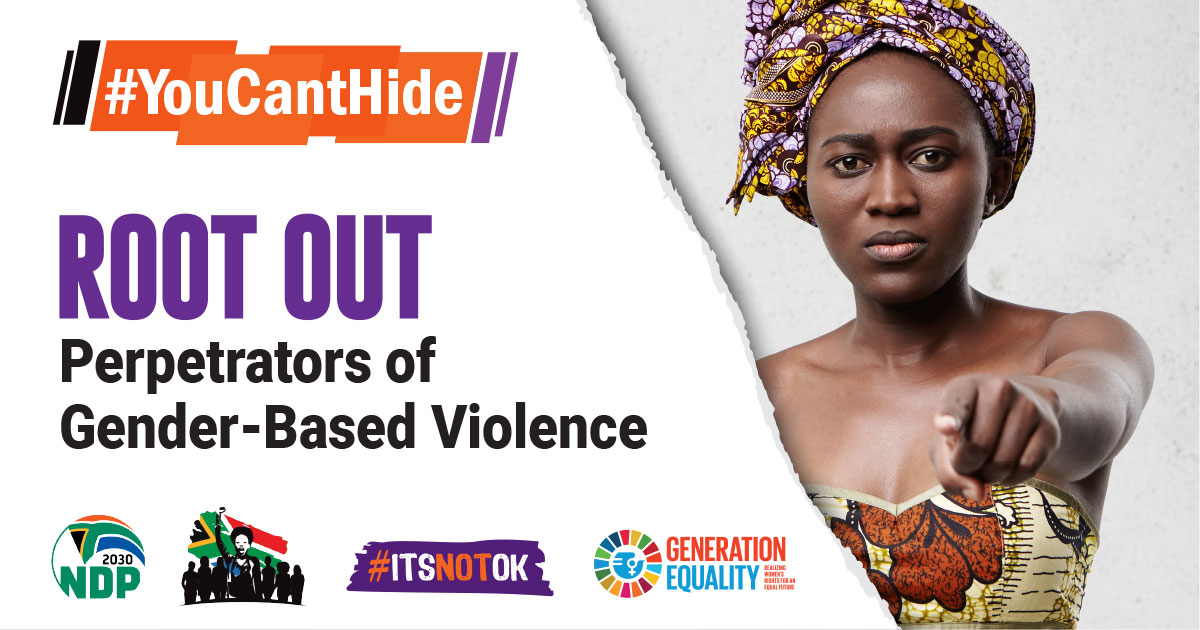Care Corner
Working together, we can end GBVF in our lifetime
South Africa is regarded as one of the most dangerous places in the world for womxn, children, and LGBTQIA+ individuals in spite of our progressive Constitution and legal frameworks. Whilst evidence suggests that there have been some effective initiatives aimed at curbing Gender-based Violence and Femicide (GBVF), these operate in isolation, addressing symptoms rather than causes, and have to date been largely unsuccessful.
 The latest statistics show that around 8 womxn are murdered in South Africa every day simply for being womxn. GBVF was declared a national crisis at the first ever South African Presidential Summit against GBVF; held on 1 and 2 November 2018 in Pretoria, which culminated in collaboration between Government, Civil Society and the womxn of South Africa to develop the National Strategic Plan on Gender-based Violence and Femicide (NSP on GBVF). It was approved by Cabinet in April 2020 to serve as a national framework to respond to the crisis of GBVF in the country in a holistic and integrated manner. The urgency of the situation dictated that we, the 1200 delegates of the Summit representing survivors, could not wait for a national coordination mechanism to be established to implement a multi-sectoral response to GBVF.
The latest statistics show that around 8 womxn are murdered in South Africa every day simply for being womxn. GBVF was declared a national crisis at the first ever South African Presidential Summit against GBVF; held on 1 and 2 November 2018 in Pretoria, which culminated in collaboration between Government, Civil Society and the womxn of South Africa to develop the National Strategic Plan on Gender-based Violence and Femicide (NSP on GBVF). It was approved by Cabinet in April 2020 to serve as a national framework to respond to the crisis of GBVF in the country in a holistic and integrated manner. The urgency of the situation dictated that we, the 1200 delegates of the Summit representing survivors, could not wait for a national coordination mechanism to be established to implement a multi-sectoral response to GBVF.
UN Women, in conjunction with the Department of Women, Youth and Persons with Disabilities (DWYPD) created a Multi-sectoral Collaborative Platform (MCP) which began to harness the capabilities of different stakeholders. This first-of-its-kind voluntary platform brings together like-minded individuals, organisations, institutions, and corporate partners to work together to implement the priorities of the NSP on GBVF in a coordinated and coherent manner. Key stakeholders include government, civil society organisations, trade unions, the private sector, development agencies and activists with the passion to end GBVF in South Africa. The collaborative is designed to address GBVF in new and more powerful ways, where cross-sector collaboration, rapid innovation, and disciplined execution are the norm, and where the capacity of people to contribute to solving their own problems is fully unleashed.
The collaborative platform focuses purely on implementing the interventions identified in the NSP on GBVF. Participants find expression of their interests and skills by joining one or more of the six pillar working groups, which are self-managed and co-convened by government, civil society, and private sector partners. Members of the collaborative join a pillar in line with their mandate or specific area of work. Pillars organise themselves to plan and execute priority interventions. They create their own rhythms. Where necessary, pillars create smaller task teams to focus on specific subjects or tasks.
Monthly collaborative sessions are designed to allocate time and space for pillar reporting and identification of strategic alignment issues. The design process includes a multi-sectoral team that ensures that all sectors of the collaborative are taken into consideration when decisions are made.
The success of the collaborative sessions lies in consciously harnessing the goodwill, skills and presence of collaborators and being responsive to their needs.
Evidence shows that the only way to successfully end GBVF is through consistent, co-ordinated action to dismantle dysfunctional, oppressive mindsets that condone rape culture and patriarchal norms which promote the oppression of womxn, children, and the LGBTQIA+ community.
It takes all people from all sectors of society to eradicate this scourge. Visit our website at https://gbvf.org.za/ to read more about the work of the collaborative and join us in creating a society free from Gender-based Violence and Femicide. One movement, one voice, one vision.
Follow us on social media:





